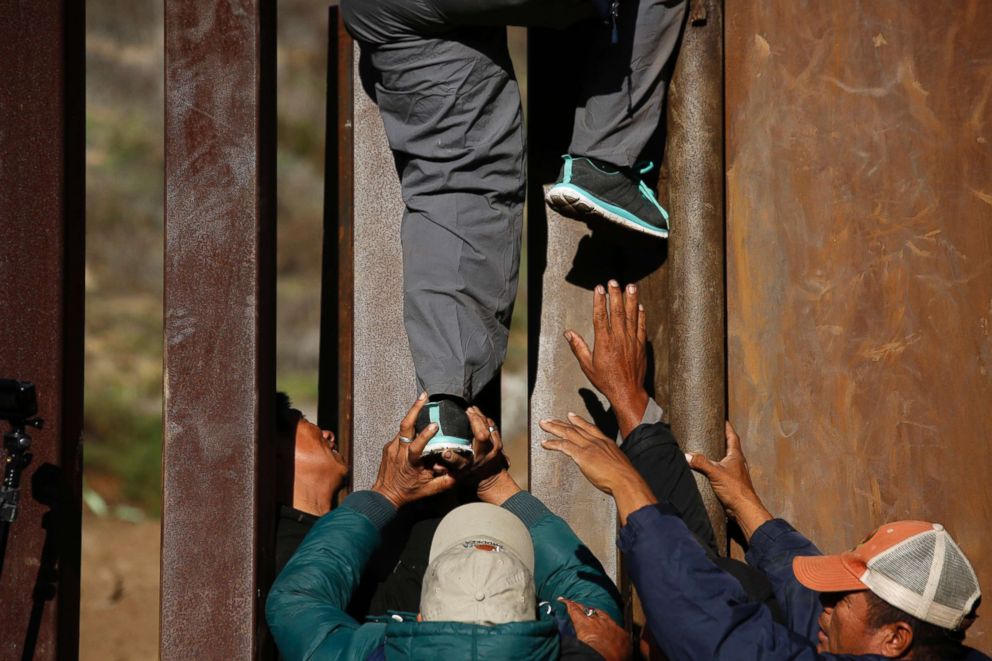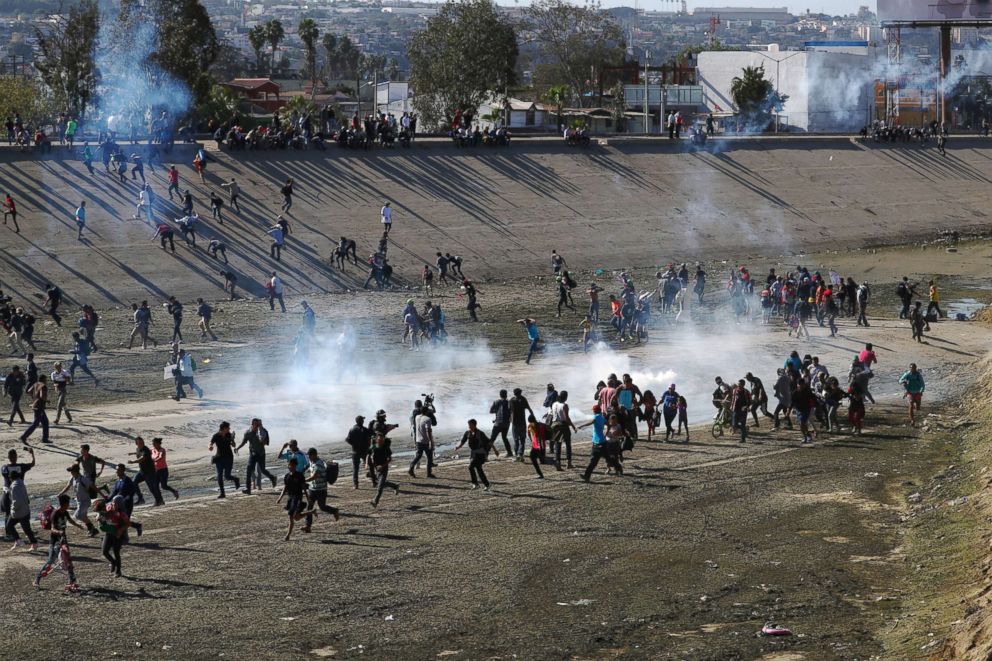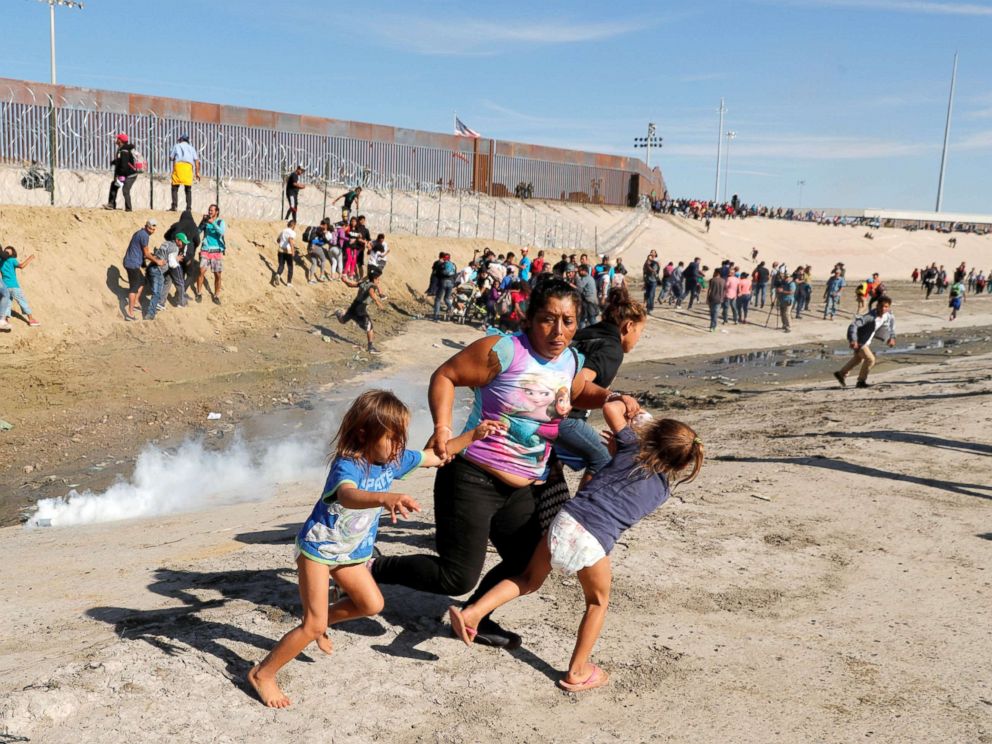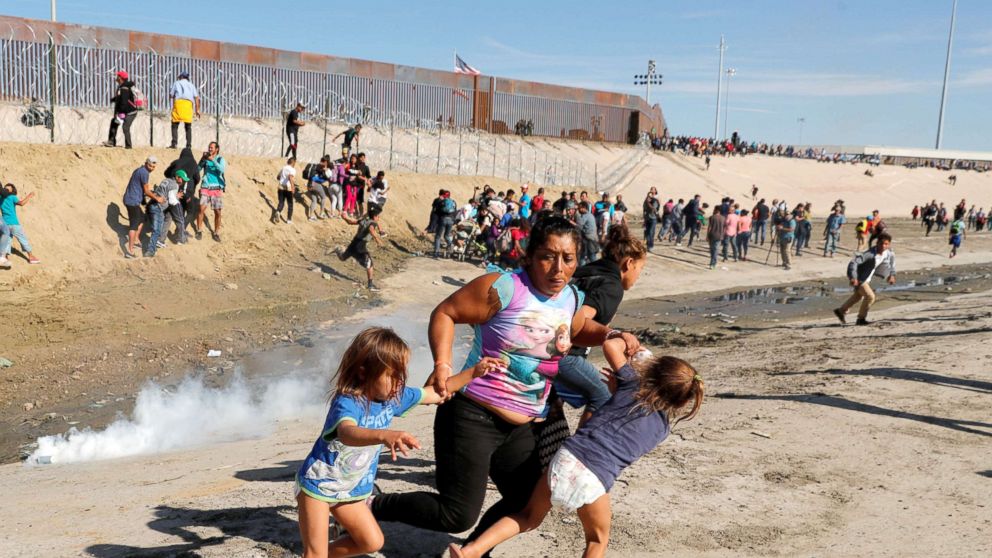Why the Trump administration let the border become a full-blown humanitarian crisis: OPINION
This week, the death of 7-year-old Jakelin Amei Rosmery Caal Maquin in Border Patrol custody made headlines around the country. She died of dehydration and shock after being apprehended with her father while attempting to cross the border, officials said.
Jakelin is far from alone. U.S. officials have counted 281 people who died trying to cross the southern border with Mexico in the 2018 budget year, according to a government document updated Friday and obtained by ABC News. Since the budget year ended on Sept. 30, another 32 people have been found dead, including four in the month of December so far, according to the document.
Based on the various stories emerging over past months, we are clearly in the midst of a full-blown humanitarian crisis at the U.S.-Mexico border.

Some of this crisis is a direct result of the Trump administration’s policies, including its zero-tolerance policy that led to family separations earlier this year and its claims that no one traveling in the so-called migrant caravans will be allowed into the country. Some of the crisis is due to a surge in families seeking to cross the border and seek safety and protection in the U.S., as is allowed under international and American law.
While we have heard a lot of rhetoric, it does not appear that the administration has expanded the necessary vetting, transportation, patrol, medical and processing resources needed to deal with the problem. And that is puzzling.
My work at the Department of Homeland Security included disrupting terrorist plots, expanding our ability to vet those seeking to travel to the U.S. from abroad, reducing the number of visa overstays and minimizing the potential of "spillover violence." That work led me to collaborate a lot with U.S. Customs and Border Protection.
I know CBP to be highly capable of understanding and responding to border issues. CBP is an information-driven, agile organization that regularly adapts the allocation of resources to the fluid, ever-changing and sometimes dangerous conditions at our borders.

Yet people are dying, being tear gassed or living in inhumane conditions both in the United States and Mexico and all we hear is that those responsible for border security do not have the resources and operational capabilities to deal with processing asylum requests, the detention of families and medical emergencies arising from the surge.
This administration has been in office for close to two years. Border security and immigration enforcement have been some of their top priorities. It makes no sense that they are unprepared to deal with border issues that are not so different than those faced by the previous two administrations.
So what has changed? Priorities. This administration seeks to reduce both legal and illegal immigration. To gain support for their political agenda, the administration describes those fleeing to the U.S. as dangerous to the nation and even to their own children. They are not people fleeing danger or seeking a better life, we are told; they are terrorists, disease-ridden and criminals seeking to invade our country or destroy our economy. That is the message of this administration. It is a message that often over-states or mischaracterizes the threat posed by both legal and illegal immigrants.
Based on how the administration implemented its zero-tolerance policy and how it responded in the weeks leading up to the migrant caravan arriving at the border, some have questioned rightly whether the objective is to create a situation that is so dire that it justifies the calls for building a wall and other draconian anti-immigration policies.

I am concerned that of late, public statements by the Department of Homeland Security have seemed more political than those generally made by law enforcement and those responsible for protecting the nation from serious threats. To be effective, DHS and its leaders need to be viewed as a credible and objective source of information regarding dangers and threats facing the U.S.
Security measures taken by the department cannot be perceived as being politically motivated; they must be necessary to protect the nation from danger. But recently, the department, through its public messages, seems willing to enter the political fray.
In response to the death of Jakelin Amei Rosmery Caal Maquin, the department and even Secretary Kirstjen Nielsen herself seem more focused on diverting attention from the fact that a little girl died while in CBP custody than getting to the bottom of what happened.
DHS seems to be using this tragedy as an opportunity to support the administration's broader political agenda. And whether one is a supporter of aggressive border and immigration enforcement or not, the bottom line is that protecting the health and safety of anyone in the custody of a law enforcement organization is the absolute responsibility of that organization.
This is not the DHS I was so proud to be a part of. Securing our southern border and preventing terrorists, criminals and illegal drugs from entering the nation is important work and the men and women of DHS do it well. But we can do better. We can achieve our security objectives and still fulfill the humanitarian responsibilities that come from our being the greatest nation on Earth.
We can secure the border and still protect a little girl.
John Cohen is an ABC News contributor and the former acting under secretary for intelligence and analysis and counterterrorism coordinator at the U.S. Department of Homeland Security.




